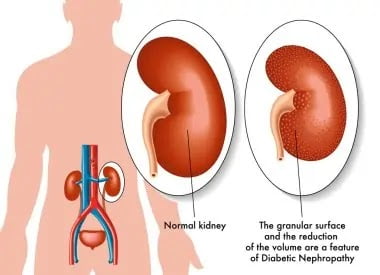
Introduction
Cardiac health is a topic of paramount importance in today’s fast-paced world. With the increasing prevalence of cardiovascular diseases, it is crucial to separate fact from fiction. In this article, we will uncover five shocking myths about cardiac health that continue to mislead people. Let’s lighten these misconceptions, empowering you to make informed decisions about your heart health.
Myth #1: Young people are not at risk

Many believe that heart problems only afflict the elderly, but this is far from true. While age is a significant risk factor, cardiac health impacts individuals of all age groups. Young people often neglect their heart health, assuming that it is a concern for later years. However, unhealthy lifestyles, poor dietary choices, and sedentary habits can place young individuals at risk. High blood pressure, smoking, excessive alcohol consumption, and stress are factors that can compromise the heart’s well-being.
Myth #2: Only men suffer from heart problems

It is a common misconception that heart diseases predominantly affect men. While historically, cardiovascular diseases have received more attention in the context of men’s health, it is essential to recognize that women are equally susceptible. Heart conditions may present differently based on gender, and women often exhibit subtler symptoms. Women’s risk factors include hormonal changes, pregnancy complications, and autoimmune diseases, making it vital to
prioritize their cardiac health as well.
Myth #3: You’ll know if you have heart disease

Contrary to popular belief, heart diseases don’t always come with evident symptoms. Some individuals may experience chest pain, shortness of breath, or palpitations, but others may be completely asymptomatic. Particularly concerning are silent heart attacks that occur without any noticeable symptoms. Regular check-ups, including blood pressure and cholesterol screenings, are crucial for detecting potential problems early on.
Myth #4: Heart diseases only occur in obese individuals

Weight is often associated with cardiac health, leading many to believe that only overweight or obese individuals are at risk. However, this myth overlooks the fact that heart problems can affect people of all body types. Thin individuals
may have hidden risk factors such as high cholesterol, diabetes, or a family history of heart disease. Additionally, factors like stress, sedentary lifestyles, and poor dietary choices can contribute to heart issues, regardless of weight.
Myth #5: A healthy diet won’t make a difference

Some individuals believe that adopting a healthy diet has no significant impact on cardiac health. However, nutrition plays a pivotal role in maintaining a healthy heart. Eating a balanced diet that includes fruits, vegetables, lean proteins, whole grains, and healthy fats can help manage cholesterol levels, regulate blood pressure, and support overall cardiovascular well-being. Nutrients such as omega-3 fatty acids, antioxidants, and fiber have specific benefits for heart
health.
As we debunk these myths, it is important to realize that cardiac health is not inevitable. By prioritizing preventive measures, such as regular exercise, stress management, and avoiding tobacco, we can reduce the risk of heart disease greatly. Small changes in our daily habits can make a significant difference in our cardiac health journey.
Conclusion: Five Shocking Myths About Cardiac Health
We hope this article has shed light on the shocking myths surrounding cardiac health. It is crucial to understand that cardiac problems can affect individuals of all ages, regardless of gender or weight. Recognizing the importance of regular check-ups, healthy lifestyle choices, and a balanced diet helps maintain a healthy heart. Remember, the power to protect your cardiac health lies in your hands.
FAQs
1. Are heart problems more common as we age?
As we age, the risk of developing heart problems increases, but it does not mean that young people are immune. Lifestyle choices and genetic factors can influence cardiac health at any age.
2. Can heart diseases be inherited?
Yes, certain heart conditions can have a genetic component. Understanding your family history and informing your doctor about potential risks is essential.
3. What are common signs of heart disease in women?
While women may experience chest pain as a symptom of heart disease, other signs such as fatigue, shortness of breath, nausea, or dizziness are more common. Women must be aware of these subtler symptoms.
4. Can a healthy diet alone reverse heart disease?
Adopting a healthy diet is a vital step toward preventing and managing heart disease. While it can have a positive impact, a comprehensive approach that includes exercise, stress management, and medication (if needed) is often necessary.
5. How often should I get my heart checked?
Regular check-ups with your healthcare provider are essential for monitoring your heart health. Depending on your risk factors, they can recommend the appropriate frequency for screenings and tests.


